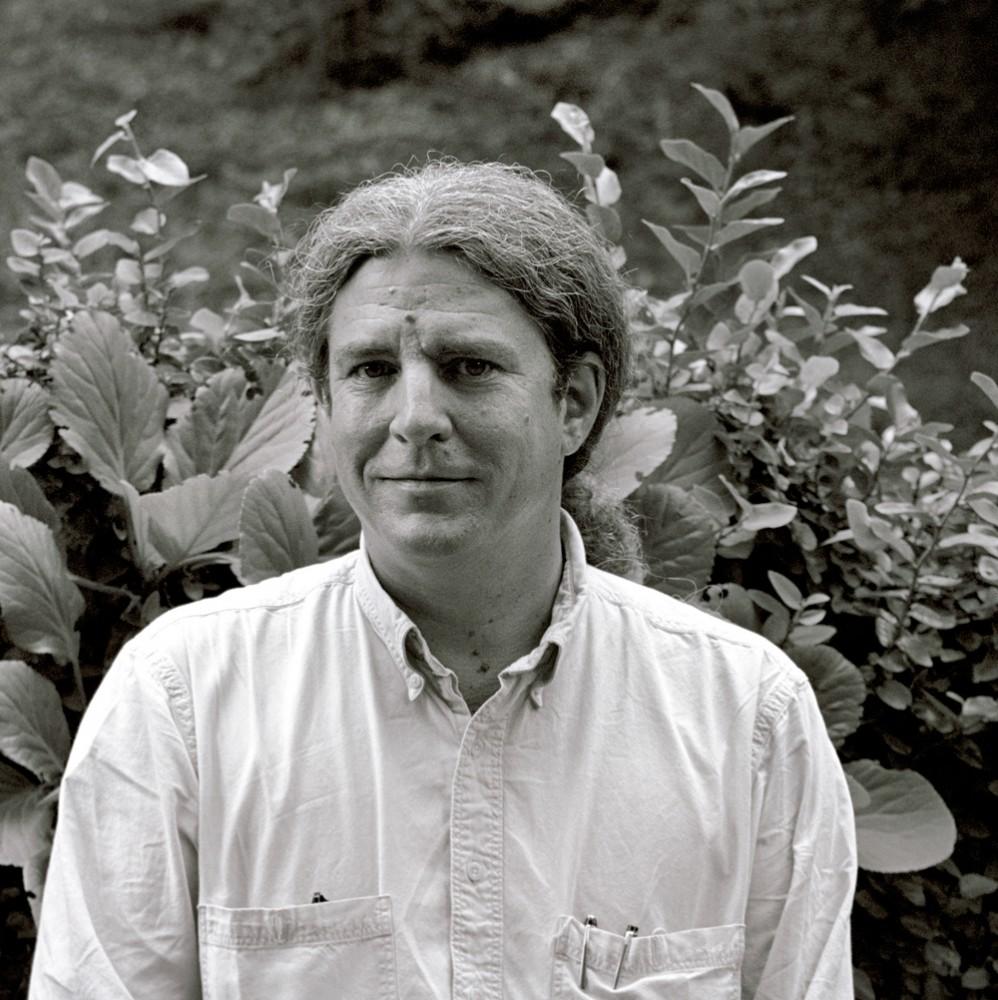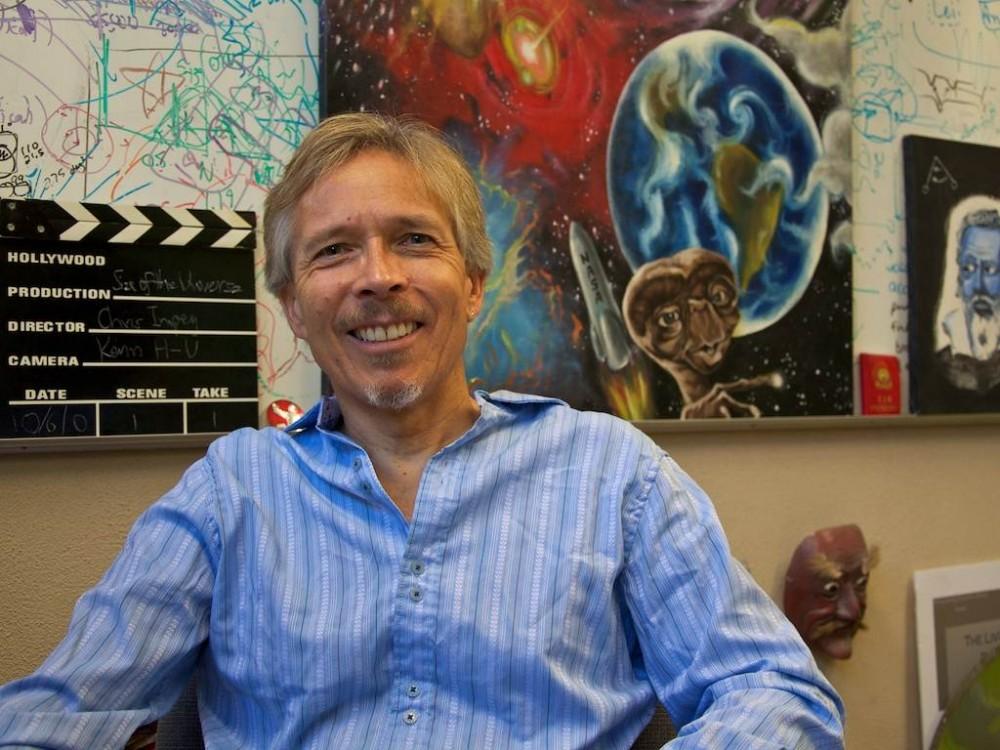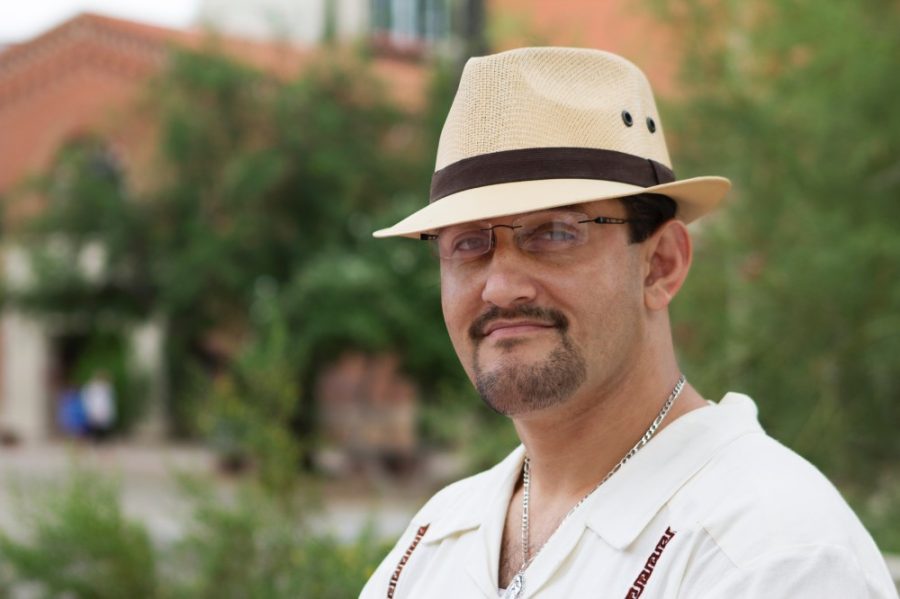The Tucson Festival of Books hosts hundreds of authors every year on the campus of the University of Arizona, and every year a number of UA professors and faculty make the short walk from their offices to promote their new books too.
The Daily Wildcat talked with three UA professors presenting their books at this year’s festival.
Nolan Cabrera
Nolan Cabrera, an associate professor in educational policy studies and practice at the University of Arizona, will be presenting his book “White Guys on Campus” and discussing racism and racial mythologies in society at this year’s Tucson Festival of Books.
Cabrera’s book, his first, examines the mechanisms of marginalization and racism on college campuses.
Back in 2006, Cabrera noticed a hole in academic scholarship on diversity in higher education. Many researchers were writing on examples of marginalization and racism on college campuses but not on how students became targets of this racism and marginalization.
RELATED: Exploring the long history of racial politics on college campuses nationwide
Over the past decade, Cabrera interviewed a number of white college men in search of the unconscious habits of students who do harm to students of color.
“During my research, I was fascinated by how strongly the white guys I interviewed believed in mythologies about race that have no basis in reality. But they fundamentally believed them,” Cabrera said.
According to Cabrera, these students were frequently dismissive of racism against minority people but conversely were upset about affirmative action, political correctness and other race-conscious policies.
In his book, Cabrera argues that race, racism and privilege still matter — a lot.
“We live in a systematically racist society, and people will sometimes unconsciously slip into racism, and it does harm,” Cabrera said. “It is important to own responsibility and understand the modest amount of discomfort you feel pales in comparison to what students of color feel constantly.”
Cabrera hopes readers walk away from his book with an understanding that individuals who reap the benefits of pre-existing inequalities have the responsibility to root them out, not for recognition, but because it is right.
Cabrera will be speaking on the panel “Conundrums of Racial Divides in American Culture” alongside Eric Lott, on Saturday, March 2, at 10 a.m. in the Social & Behavioral Sciences Tent.
Cabrera is already working on two new books, one about the cultural history of Mexican-American study programs in Tucson and their fight for survival and the other about the socialization of victimization among middle-class white males who see themselves as the real victims of racism.

Gregory McNamee
Gregory McNamee, a lecturer in economics in the UA Eller College of Management, will be presenting his new book, “Tortillas, Tiswin, and T-Bones,” and discussing the movie “The Wild Bunch” as a panelist at this year’s Festival of Books.
McNamee’s book examines the intersection of food, culture, history and economics in the Southwest.
The idea for the book struck McNamee while he was eating a taco in San Antonio nine years ago.
McNamee was thinking about the strong Hispanic, Native American, African American and immigrant influences on the food traditions of the Southwest and how these conflicted with the political values represented by state and national leaders.
“We would be eating a very boring diet without these influences,” McNamee said.
In his book, McNamee uses food as a metaphor to talk about larger issues of politics and immigration in the Southwest.
McNamee hopes readers walk away from his book with a newfound appreciation for just how international Southwestern cuisine really is and how new arrivals from places like Cambodia and Nigeria are continuing to add new plates to the culture.
In writing the book, McNamee drew on his collection of favorite restaurants from his travels across the Southwest and also hundreds of books and articles he read as part of his research.
“If you want to be a writer, you must be a reader,” McNamee said. “If you are serious about your craft, you will always have a book in front of your nose. There is no substitute for that.”
McNamee, who has written professionally for over 40 years contributing to, among many things, the Encyclopaedia Britannica, also advised aspiring writers to write every single day.
To end his book, McNamee predicts that the future of the Southwestern diet will look a lot like those of past Native American diets. Insects, high in protein, will creep back into our diets as climate change and political turmoil pressure humans to adapt, according to McNamee.
McNamee will be speaking on the panel “If They Move, Kill ’Em” alongside W.K. Stratton and Thomas Sheridan, on Sunday, March 3, at 4 p.m. in Room 141 of the Integrated Learning Center.

Chris Impey
Chris Impey, a professor of astronomy and associate dean of the College of Science, will be presenting his new book, “Einstein’s Monsters: The Life and Times of Black Holes,” and discussing science fiction writing at this year’s Festival of Books.
Impey’s book explores the history of research into black holes, shining a light on what is known and what is yet to be discovered.
Impey has long studied how supermassive black holes at the center of galaxies evolve and grow, but in recent years, he has also become interested in science literacy, which was the impetus for this book.
“Even though black holes seem exotic and strange, they are a real, regular part of the universe we live in,” Impey said. “Every galaxy in the universe has a black hole, billions of times the mass of our sun, at its center.”
The book weaves in anecdotes from the life of Albert Einstein, who first theorized about and was horrified by the immense energy of black holes, and researchers of contemporary fame like Stephen Hawking, who often made bets with other scientists on whose theories of black holes would prove correct.
Impey said he hopes readers walk away from his book with a greater understanding of and appreciation for black holes. According to Impey, in the near future, researchers will take the first image of a black hole and use their measurements of black holes to test our theories of gravity and the early universe.
RELATED: New discoveries on the horizon thanks to grad student’s black hole research
Impey, a long time attendee of the Festival of Books, believes everyone can find something they are interested in at the festival.
“It is a great thing for Tucson, no matter the weather, everyone is excited about the festival,” Impey said.
Impey is already tossing around ideas for a new books, with a potential astronomical murder mystery in the works.
Impey will be speaking on the panel “Einstein and His Black Holes” alongside Seth Fletcher on Sat, Mar. 2, at 11:30 a.m. on Science City’s Main Stage and the workshop “Scientists Who Write Science Fiction” alongside J.L. Doty on Sunday, March 3, at 2:30 p.m. in Room 125 of the Integrated Learning Center.
Follow Randall Eck on Twitter









